


Ties between Jerusalem and Paris have hit a rough patch, to put it lightly.
On Tuesday, Prime Minister Benjamin Netanyahu fired off a letter to French President Emmanuel Macron, berating him once again over his decision to recognize a Palestinian state in September.
Netanyahu charged that the move — which Paris has framed as an effort to revive the two-state solution in light of the Gaza war — “rewards Hamas terror,” hurts hostage talks, “and encourages the Jew-hatred now stalking your streets.” He issued Macron with an ultimatum to act to confront antisemitism in France and change his approach toward Israel by the Jewish new year in late September.
In response, the Elysée Palace slammed the accusation as “abject” and “erroneous,” adding that Netanyahu’s letter “will not go unanswered.”
Hours before the letter became public, The Times of Israel spoke with the man at the center of the storm, Israeli Ambassador to France Joshua Zarka.
Discussing the diplomatic fallout between his native France and the country he immigrated to, Zarka warned that Macron’s plan to unilaterally recognize a Palestinian state — while the Gaza war rages and without demanding concessions from the Palestinians — is a “terrible mistake” that risks sidelining France as a credible actor in the Middle East.
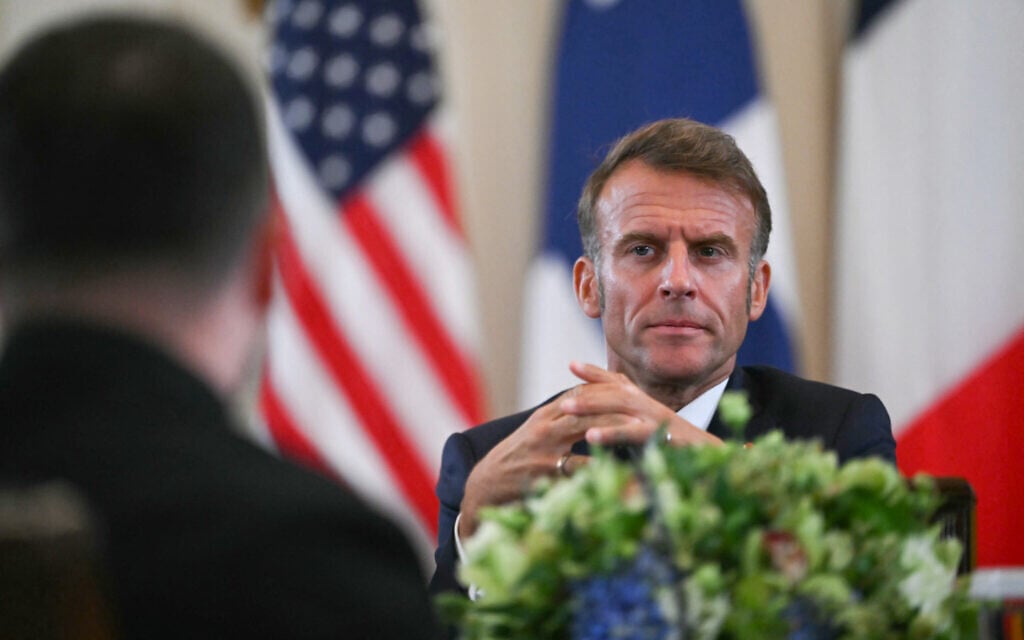
The ambassador argued that Macron’s tilt against Israel is driven less by fear for Palestinian lives than by fear of France’s growing Muslim minority.
He contended that foreign actors such as Qatar and Iran are fueling a “propaganda war” that Paris, along with much of the West, has absorbed, leading to unfair and hypocritical criticism of Israel’s conduct in Gaza. At the same time, he pointed to rising antisemitism in France as proof of a dangerous climate that is pushing many Jews to consider emigration to Israel.
While insisting that Israel still seeks peace in the long term, Zarka cautioned that Macron’s decisions are destabilizing the region and risk eroding French influence with Israel.
The French Embassy in Israel declined to comment on Zarka’s remarks.
While emphasizing that “nobody really knows except for the president himself,” Zarka described “a few issues” that he believes are influencing Macron’s decision-making on Israel and the Palestinians.
“One is internal politics – the fact that there is a growing Arab street in France, of which the president is afraid,” Zarka said. “From his point of view, he has to basically deliver goods to that street to keep the street calm… in the last year, this is having more and more weight in his decision making.”
Macron has faced mounting tensions at home since the Gaza war began. He first pledged full solidarity with Israel, but soon moved toward calls for a ceasefire and more aid for Gaza — a shift some analysts say was meant to ease pressure from a divided electorate, with Muslim voters largely rallying behind the pro-Palestinian left.
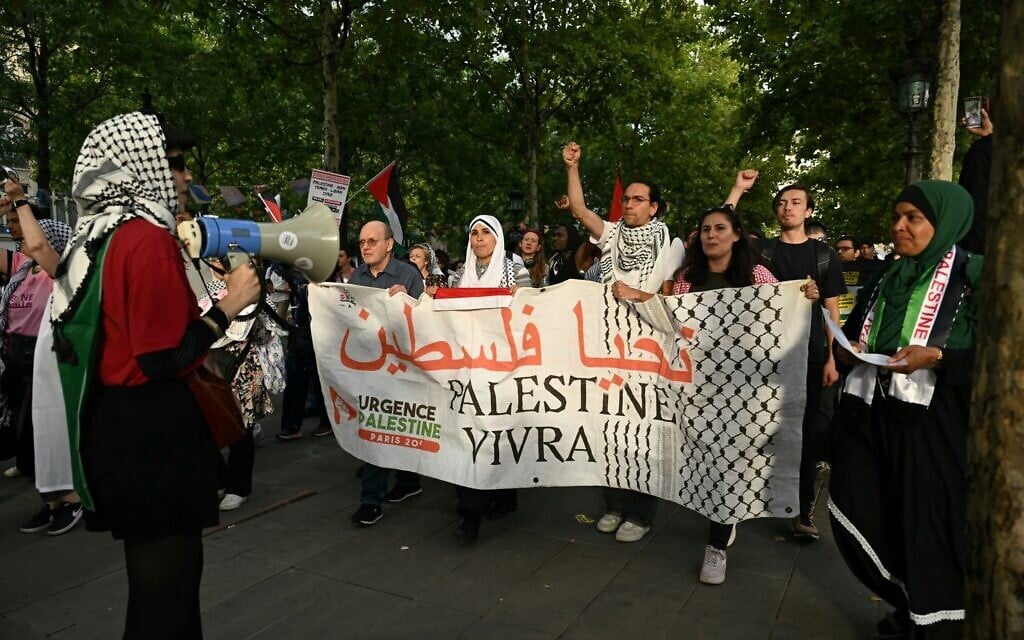
France today has both the largest Muslim and Jewish populations in Europe — around 10 percent and less than 1% of the population, respectively — and Zarka suggested Macron believes the Muslim community, many with roots in North African and Middle Eastern communities, will become “a very significant force in France within 10 years.”
Domestic decisions tied to Israel, such as barring Israeli industries from major Paris air and naval arms shows, reflect this fear of upsetting the pro-Palestinian camp, Zarka noted.
While Paris frames its move as a response to Israeli actions in Gaza and the West Bank, Zarka insisted that humanitarian concern is not driving Macron’s foreign policy. “If there was an ideology that had to do with saving lives, he would do something similar with the Congo or Somalia, where we’re speaking of millions of people dying. And France is not doing anything in these countries.”
Zarka also blamed outside influence, pointing to Qatar and Iran for bankrolling “a propaganda war” that Paris and other Western capitals have absorbed, saying this contributed to “a shift in the decision-making” of France surrounding the Gaza war.
Such influence isn’t hypothetical. Qatar wields extensive soft power through media networks like Al Jazeera, global cultural and sporting investments, and high-profile diplomatic roles — tools that critics say it uses to shape narratives favorable to Palestinian causes and its own regional interests. Iran has also been said to deploy online and offline influence campaigns to strengthen anti-Israel perspectives, especially around the Gaza conflict.
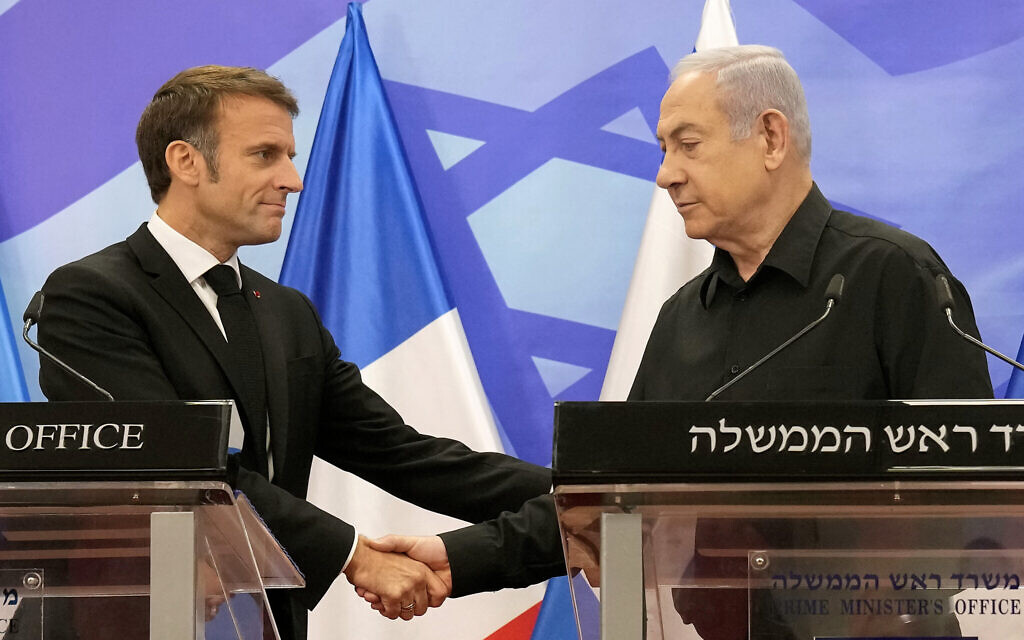
Zarka recalled that in late October 2023, shortly after the Hamas invasion, Macron showed staunch support for Israel, stating after meeting with Netanyahu in Jerusalem that countries fighting ISIS “should also fight against Hamas.” An Elysee official said soon after that France was ready to expand its role in the anti-ISIS coalition “to include Hamas,” depending on Israel’s requests.
The aforementioned coalition was formed by some 86 countries in 2014 to assist Iraqi and Kurdish forces fighting ISIS, and eventually drove the terror group from strongholds like Iraq’s Mosul and Syria’s Raqa, with France contributing ground forces, trainers, special forces and fighter jets.
“I believe Macron really wanted to do something significant,” Zarka said, noting that dozens of the approximately 1,200 people killed by Hamas-led terrorists on October 7 were French citizens. But the French quickly realized that joining Israel in a war against Hamas — unlike the broad fight against ISIS — “was not realistic.”
As the Foreign Ministry’s deputy director general for strategic affairs at the time, Zarka said he sat with French officials to clarify Macron’s remarks, but they effectively walked back their president’s idea.
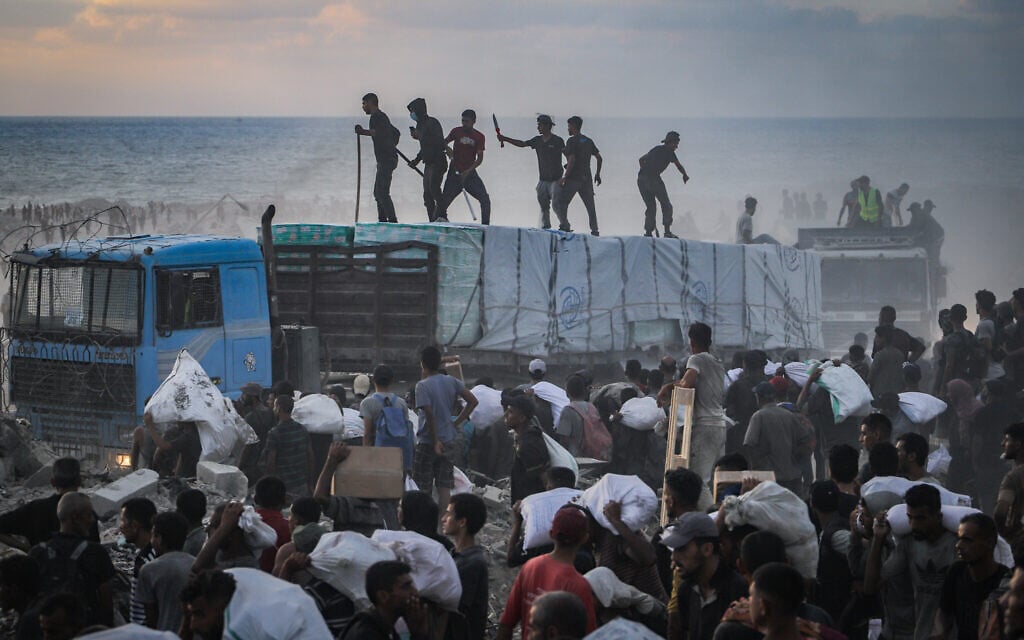
Furthermore, Macron “didn’t realize” that Hamas had taken not only 251 Israelis hostage, but had also effectively seized “the entire population of Gaza” by embedding itself among civilians. “I think he believed Hamas could be defeated through very precise military strikes with no collateral damage.”
As Israel’s offensive dragged on, French criticism of its conduct intensified — unfairly, in Zarka’s view. He cited claims by French officials about the “militarization of humanitarian aid,” countering that “Israel is providing aid, Israel is paying for it. We’re providing tons and tons of food.”
Israel is providing aid, Israel is paying for it. We’re providing tons and tons of food.
Tensions spiked after Israel halted all aid deliveries in March, arguing that Hamas was looting supplies and using them to resupply. The US- and Israel-backed Gaza Humanitarian Foundation only began operations in late May, and it quickly came under fire amid reports of IDF shootings near aid sites and its failure to ease the deepening crisis. Israel has further ramped up aid efforts in recent weeks, in response to a global outcry over allegations of widespread starvation.
Zarka only vaguely acknowledged missteps — “It’s true, we learn that we have our mistakes” — but insisted Israel was working to improve, and that much of the criticism was misplaced.
“When France had its work on ISIS, I don’t remember them providing [aid] to Mosul and Raqa. Yet when we were providing humanitarian assistance in huge quantities… the only thing that they did was criticize Israel.”
What makes Macron’s move to recognize a Palestinian state so objectionable to Israel, Zarka said, is both its timing and the lack of conditions attached.
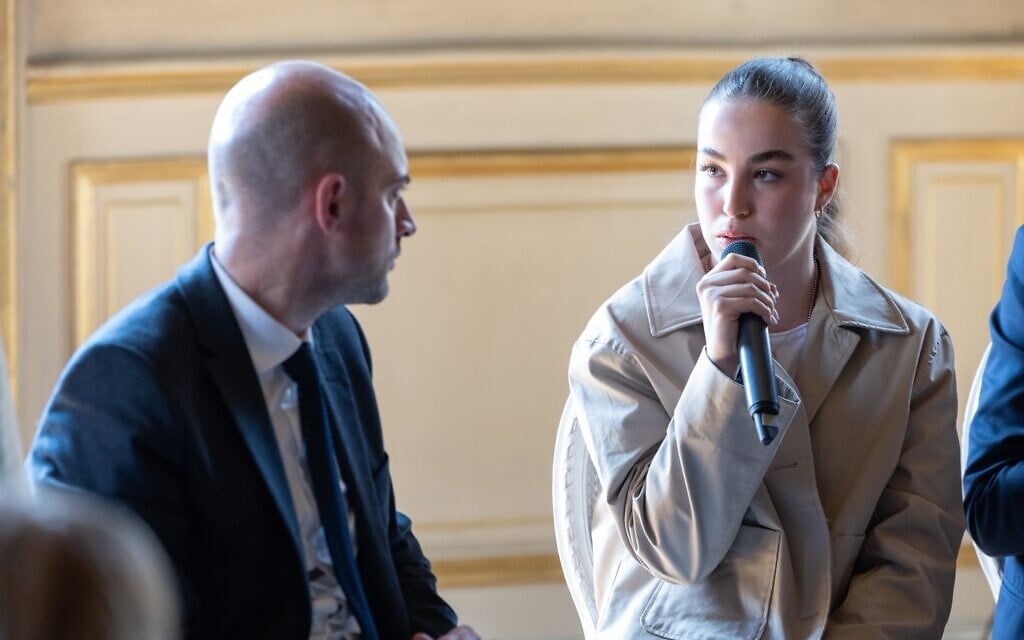
Zarka echoed the anger expressed by other Israeli officials, emphasizing that France is choosing “to recognize a Palestinian state before the war has ended, when there are still hostages in the hands of Hamas, when Hamas is still armed. They’re doing it without conditions, after the massacre that took place on October 7.”
This was a deliberate choice, Zarka added. “There was a public political debate in France leading up to the decision… Do we recognize unconditionally, or do we set conditions? The president has chosen to recognize without having the conditions met. And that is a terrible, terrible mistake.”
[France is] giving the Palestinians on a silver platter the recognition of a state without any demand from them. And that is very dangerous.
He contended that Israel already gave the Palestinians “a de facto state” when it withdrew from Gaza in 2005 — and noted that he was personally involved at the time in trying to persuade Gulf leaders to invest in Gaza’s economy.
“I was working with the Gulf, in the Gulf, trying to convince Arab leaders there to contribute to the welfare of Gaza and to create an economy that would be an example to the rest of [the Palestinian population.]” Yet instead of prosperity, he said, Israel received “a base to fire missiles against us.”
Still, Zarka emphasized that Israelis have not abandoned the principle of peace.
“The Israeli population, fundamentally, still believes that the only option in the long run, not now, in the very long run, would be peace,” he said. “How to define peace… is something that needs to be defined by negotiations between us and the Palestinians,” as opposed to unilateral recognition.
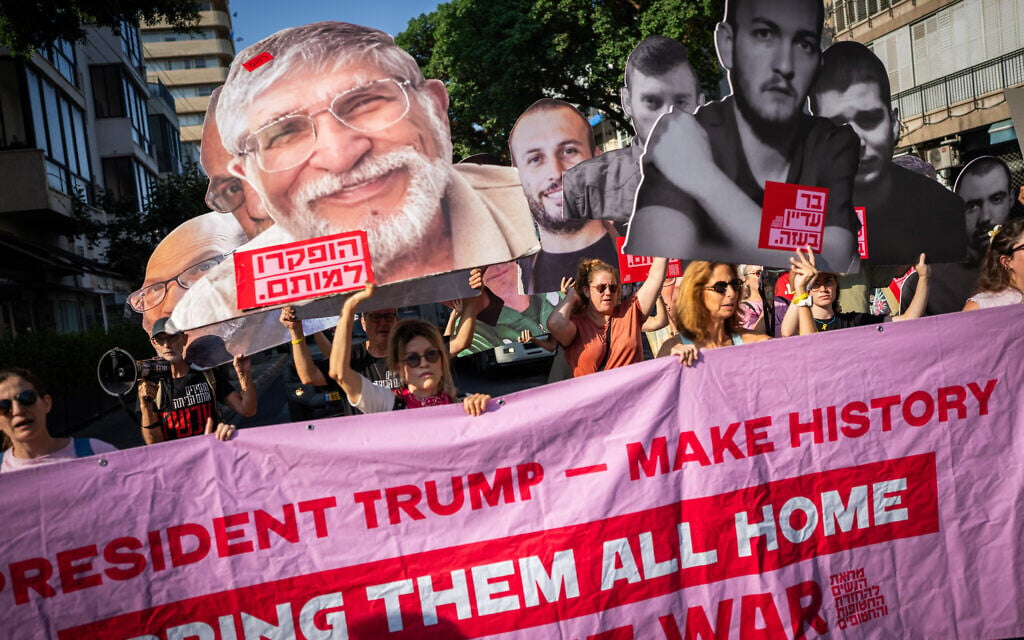
“Instead of helping us create the conditions that would lead to peace, they create chaos… giving the Palestinians on a silver platter the recognition of a state without any demand from them. And that is very dangerous.”
France insists recognition won’t undermine Israel’s security, praising a June letter from Palestinian Authority President Abbas, pledging Hamas’s disarmament, PA reforms and long-delayed elections. But while citing these as crucial for statehood, Paris has not set them as preconditions for French recognition.
Zarka declined to comment on possible Israeli measures in response to such recognition or potential French reciprocal action. Earlier this week, reports suggested that Foreign Minister Gideon Sa’ar was weighing shutting France’s consulate in Jerusalem, which Paris said would “provoke a strong response.”
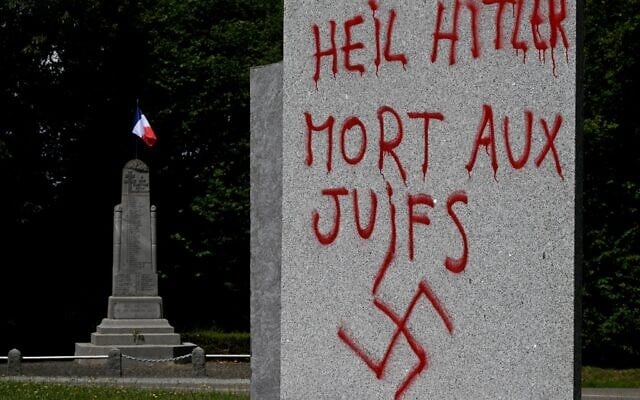
Instead, Zarka warned of the broader trend: “I think that if France in the past was a force of stability or help in the Middle East, France is becoming more and more a destabilizing power in the Middle East. And that’s something that is worrying us.”
Zarka also described an atmosphere of daily hostility facing French Jews.
“You can’t compare what I experienced as a child in France and my family’s experience to what the Jewish community is experiencing today. A day doesn’t pass without some sort of antisemitic incident,” he said, adding that while authorities try to respond, “the number of events is so high that it’s just impossible for them to deal with everything.”
He said ordinary Jews in France increasingly tell him they want to leave — “The moment they realize I’m the ambassador, they say, ‘We want to immigrate to Israel, when will it be too late?… We’re not safe here,'” — and added that his own cousins are considering it.
As a diplomat, Zarka said his instinct is to “find common ground” rather than escalate, but stressed that “it takes two to tango,” and that France’s steady criticism over Gaza leaves little room for trust.
“There is a very strong connection between France and Israel, between the French and the Israeli people. We have a very rich history together. Let’s not forget that France came to our help when we were attacked by Iran. I truly don’t think Macron hates us or has ill feelings towards Israel,” he said.
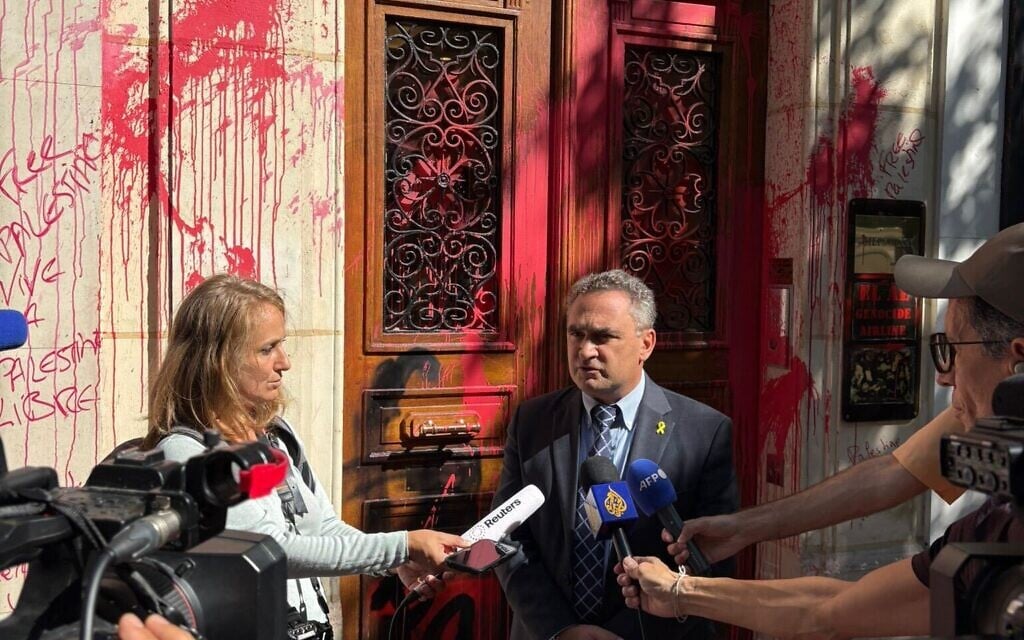
Still, Zarka argued that Macron’s recent decisions on the Palestinians are “destabilizing rather than constructive,” saying he was “concerned about the outcome of that.”
“I’m here to try to strengthen the bilateral relations. My goal here is not to find ways to punish France,” he continued.
Yet he fears that after recognition, “there will be no trust on our side to work with France on regional issues. I have no doubt that France will be sidelined.”
Asked if Paris shares this concern, the ambassador replied simply: “I hope.”

